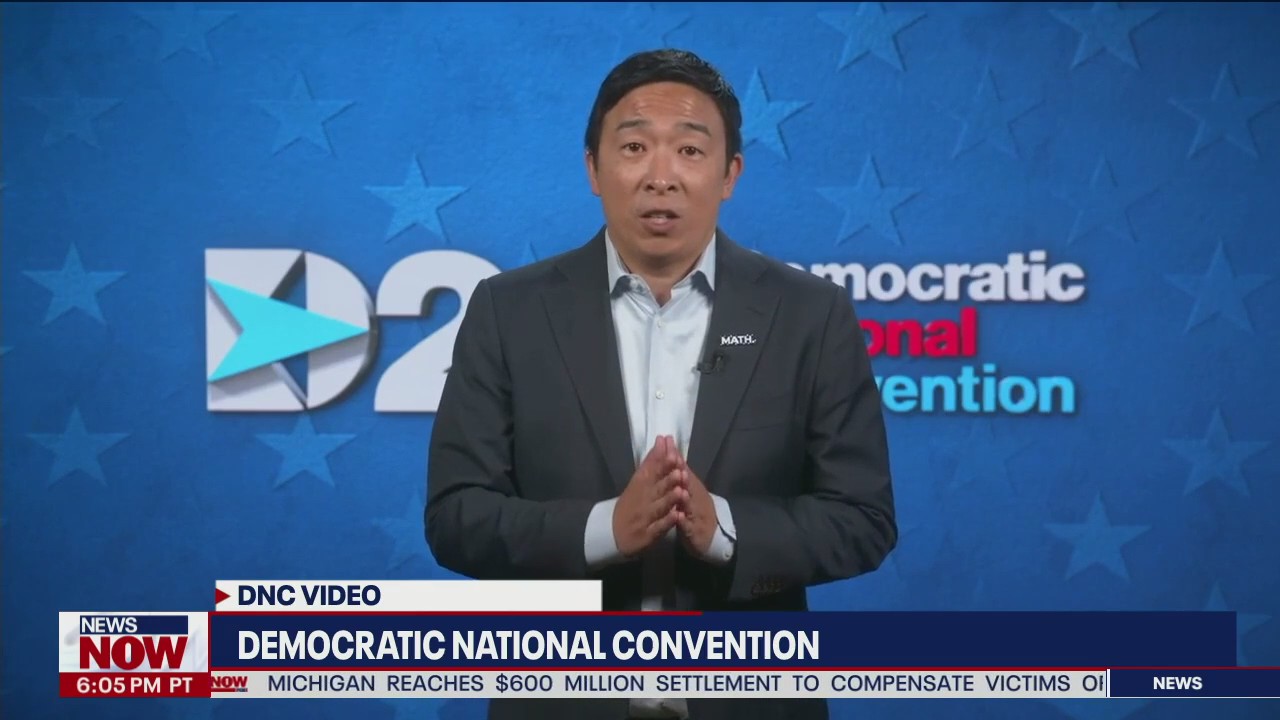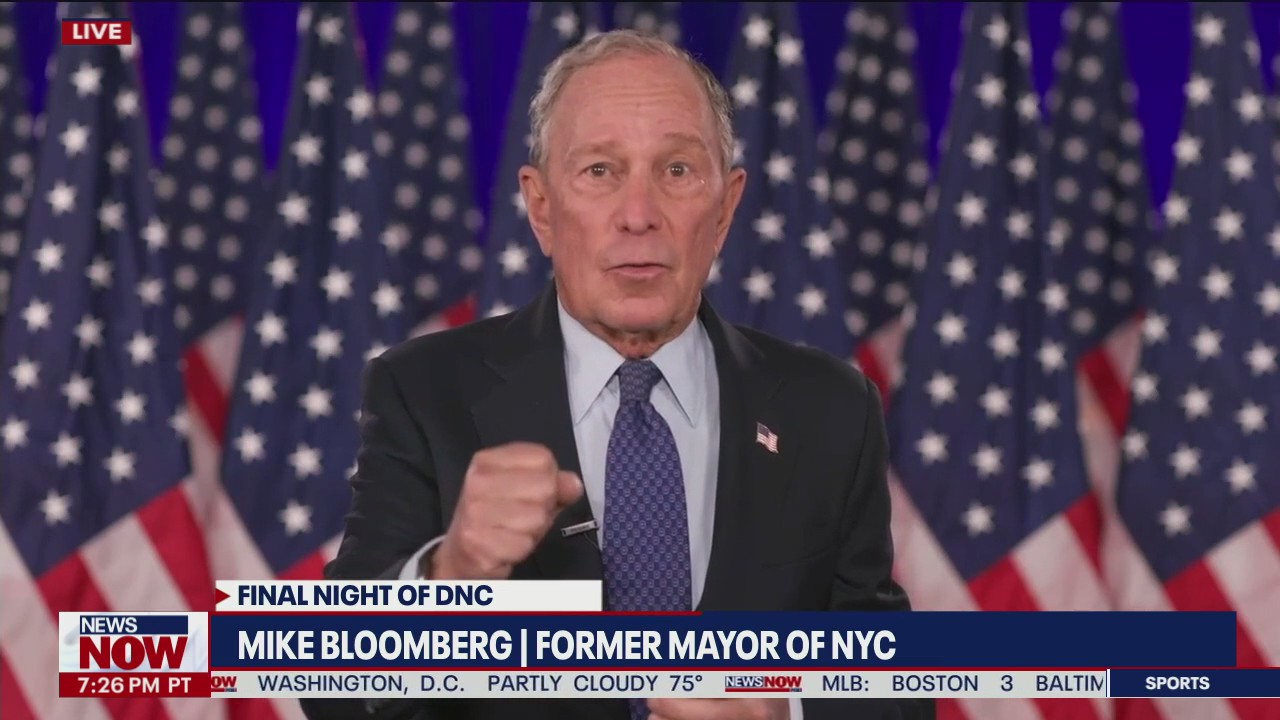Takeaways from the final night of the Democratic convention
A convention without a roaring crowd, confetti cannons, funny hats — a gathering in name only — delivered the Democratic presidential nomination to Joe Biden on Thursday, the culmination of a lifelong pursuit that comes at a time of crisis.
Here are key takeaways from the final night of the Democratic National Convention.
FAITH AT THE FOREFRONT
On the night he was to officially accept the Democratic nomination for president, Joe Biden put faith front and center, making a point not to cede the issue to Republicans.
Sen. Chris Coons, who represents nominee Biden’s home state of Delaware, spoke of a “private” faith that is personally defining for Biden, a practicing Roman Catholic. Coons said the nominee “believes in the power of prayer” and in “the dignity of all people” because they are “made in the image of God.”
Simone Campbell, of the social justice activist group Nuns on the Bus, delivered the invocation. Atlanta Mayor Keisha Lance Bottoms praised the late civil rights icon John Lewis as a “God-fearing man.” Another segment from historian Jon Meacham leaned on Martin Luther King Jr.’s final sermon.
A video from a CNN town hall in February showed Biden explaining his faith as he discussed the 2015 killings of nine Black men and women by a white supremacist at a historically Black church in Charleston. “They forgave him,” Biden said of the victims’ families. “The ultimate act of Christian charity. They forgave him.”
Emcee Julia Louis-Dreyfus lightened the moment but drove home the point with a dig at President Donald Trump’s photo op during racial justice protests in Washington, D.C.
“Just remember,” she said, “Joe Biden goes to church so regularly that he doesn’t even need tear gas and a bunch of federalized troops to help him get there."
Trump maintains an overwhelming advantage among white evangelicals. But marginal shifts to Biden among that group and mainline Protestants and Catholics could be key in battleground states.
STILL THE OBAMA-BIDEN, ER, BIDEN-OBAMA PARTY
When Biden celebrated his crucial South Carolina primary victory on Feb. 29, he boomed proudly, “I’m an Obama-Biden Democrat!”
Indeed, the Democrats' virtual convention made clear they are still the Obama-Biden party. What that actually means, in terms of policy and politics, is, however, less clear.
Through four nights and eight hours of programming, the speakers who claimed the most airtime besides Biden and his vice presidential nominee Kamala Harris: former President Barack Obama and his wife, Michelle. And’s it really not close.
Obama was the only former president to speak live, and he spoke nearly four times longer than former President Bill Clinton -- a man not known for brevity. Michelle Obama closed out Monday night with a keynote almost twice as long as the combined time awarded to 2016 presidential nominee Hillary Clinton and House Speaker Nancy Pelosi, the first women ever to reach those pinnacles.
It’s a sobering reminder for the Democratic old guard that, even with a 77-year-old white man as nominee, the future of the party looks more like the first Black president, his wife and Biden’s running mate.
The question is whether Democrats are leaning too heavily on the Obamas’ star power, and how it can be leveraged in the coming fall campaign.
THE COMPASSION-EMPATHY-RIGHTEOUS ANGER CARD
Democrats quite consciously played up empathy, compassion and a bit of righteous anger, all traits they associated with Biden.
On Thursday, it was Brayden Harrington, a 13-year-old who shared his story of bonding with Biden over their shared stutter. The night before, there was the Sanchez family of North Carolina telling of how Trump’s immigration policies threaten them.
On Tuesday, Biden’s name was placed in nomination by an elevator operator who gave him a ride to a meeting with The New York Times Editorial Board. On Monday, Kristin Urquiza offered one of the week’s most memorable lines, as she recounted losing her father to coronavirus: “His only preexisting condition was trusting Donald Trump — and for that he paid with his life.”
Some Republicans might call it exploitative. Some independents might see it as the obvious, even stale play for the major party that unabashedly advocates for more government action in the economy and society.
But Democrats saw added punch to the approach in 2020 because of the matchup at the top of the ticket. Trump’s calling card is the say-anything, etiquette-be-damned approach that infuses his rhetoric and, Democrats argue, his policies.
Biden, beyond having Democrats’ usual liberal safety net slate, is the once-stuttering schoolboy who’s endured immense grief as a father who’s lost two children.
In short, Democrats are betting that a majority of voters simply want what former Republican President George H.W. Bush once called for: “a kinder, gentler nation.”
MIKE BLOOMBERG, CAPITALIST VALIDATOR
Mike Bloomberg provided a jolt to the 2016 Democratic Convention, when the billionaire former Republican mayor of New York unloaded on Trump and tried to show opposition to the reality show star came from all sides of the political spectrum.
But on Thursday he speaking after spending $1 billion on an ill-fated bid for the Democratic party’s nomination, after he which he was sued by former staffers for cutting their health insurance during a pandemic. There’s a deep current of unease among party operatives about him now.
Still, Bloomberg can be a valuable validator of Biden as a champion of capitalism rather than socialism, heading off a Trump line of attack. And he promised to spend generously to help elect Democrats this year — as he did in 2018 — even if he didn’t win the nomination.
So far, Bloomberg hasn’t opened his checkbook too widely, but a prime-time speaking slot may be the final push needed to revive his generosity. Indeed, he has promised to spend $60 million — on top of about $53 million he’s given so far this year to the party — to further expand the Democrats’ House majority. Bloomberg made the promise for $60 million on the first day of the Democratic National Convention.
DID IT MATTER?
The dirty little secret of modern political conventions is that they have relatively little impact on the presidential election.
Conventions usually lead to a boost of in the polls for the ticket. But that boost often fades. Case in point: Massachusetts Gov. Mike Dukakis led then-Vice President George H.W. Bush by as much as 17 percentage points after the Democratic National Convention in 1988. Bush won the election by nearly 8 percentage points.
If Democrats want a more recent reminder, Hillary Clinton came out of the 2016 Democratic National Convention with a lead of about 8 points, and we know what happened to her.
Most political professionals are dismissive of any poll conducted until two weeks or so after the conventions, when a more meaningful assessment of the race begins to emerge.
The uncertainty is even greater this year because the pandemic forced the events online. Television ratings have been lower than recent Democratic National Conventions, and it’s hard to know whether online viewing has made up for that.




